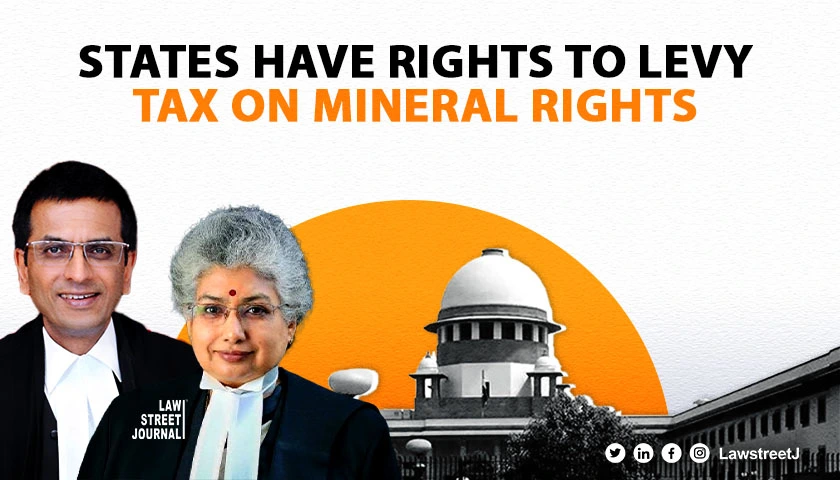NEW DELHI: In an important judgement, the Supreme Court's 9-judge bench by a majority view held that states have competence and power to levy tax on mineral bearing lands.
The bench led by Chief Justice of India D Y Chandrachud upheld the power of the states to impose tax and said royalty paid by mining lease holders to the central government is not a tax.
"Royalty is not in the nature of tax. We conclude that the observation in India Cements judgment stating that royalty is tax is incorrect. Payments made to the government cannot be deemed to be a tax merely because a statute provides for its recovery in arrears. Royalty on extracted mineral is not a tax," the bench said.
Justice B V Nagarathna, however, took a different view on the issue.
"I hold royalty is in nature of the tax. States have no legislative competence to impose any tax or fee on mineral rights. Entry 49 is not related to mineral-bearing lands. I hold India cement decision was correctly decided," Justice Nagarathna said.
The majority view held, "The legislative power to tax mineral rights lies with the State legislature and the Parliament does not have the legislative competence to tax mineral rights".
The bench also made it clear that the Parliament could not use its residuary power regarding this subject matter. So the State legislature has the legislative competence under Article 246 read with Entry 49 of List 2 to tax mineral bearing lands.
The court explained royalty is not a tax as it is a contractual consideration paid by the mining lesse to the lessor for enjoyment of mineral rights.
“The liability to pay royalty arises from the contractual conditions of the mining lease. The payments made to the government cannot be deemed to be a tax merely because of the statute for their recovery as arrears,'' the bench said.
The judgment is to come as a boon for mineral rich states.
Over 80 appeals were filed by different state governments, mining companies and public sector undertakings. The hearing in the case continued for eight days.
The Constitution bench, which also comprised Justices Hrishikesh Roy, Abhay S Oka, J B Pardiwala, Manoj Misra, Ujjal Bhuyan, Satish Chandra Sharma and Augustine George Masih, had reserved its verdict on March 14.















